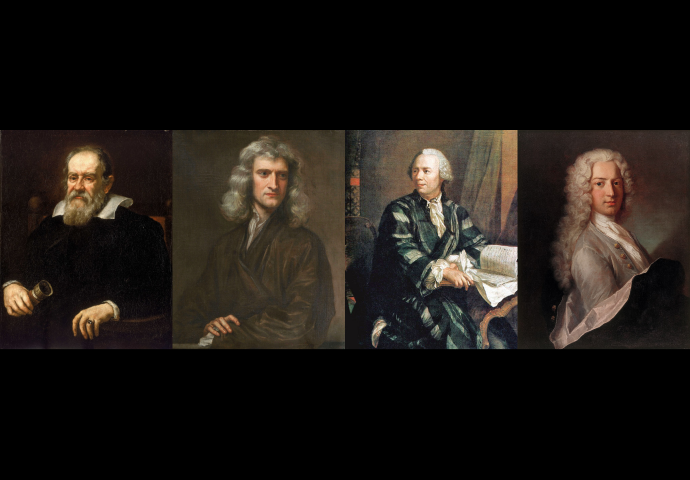(Click the table of contents to navigate to the detailed content)

Intro
History of Structural Engineering Timeline
4. 20th Century
1928 Prestressed Concrete | Eugène Freyssinet
1930 Moment Distribution Method | Professor Hardy Cross
1955 Tubular Designs for High-Rises | Fazlur Khan
1956 Finite Element Method | The paper Stiffness and Deflection of Complex Structures
1965 Nastran | NASA
1969 First generation of FEA software | The MacNeal-Schwendler Corporation
1973 Sydney Opera House | Jørn Utzon, Peter Hall
References
Topics
You can find information about the history of Structural Engineering Before Christ here:
Interesting History of Structural Engineering 1 - BC
Interesting History of Structural Engineering 2 - Scientific Revolution
Interesting History of Structural Engineering 3 - 19th Century
Intro
In this content, we will explore history or structural engineering from the advent of prestressed concrete to the pioneering use of computer-aided design. The first generation of FEA software, which is used by all modern structural engineers, emerges during this period.
History of Structural Engineering Timeline
 History of Structural Engineering Timeline
History of Structural Engineering Timeline
4. 20th Century
1928 Prestressed Concrete | Eugène Freyssinet
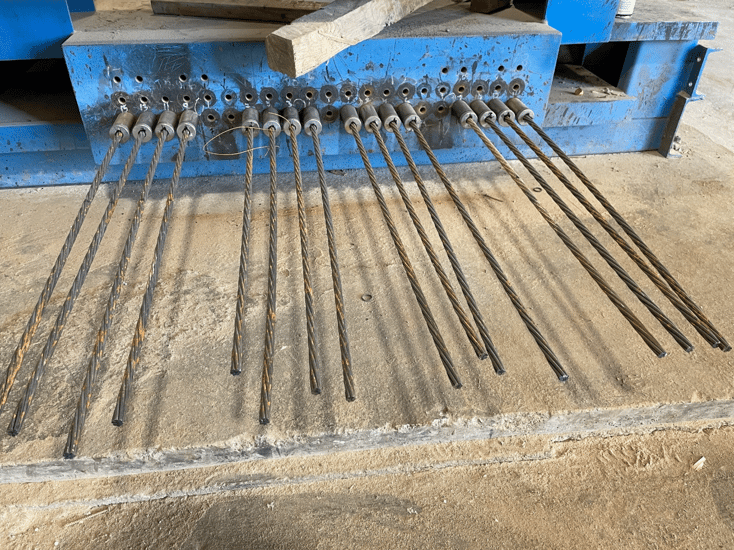 Prestressed concrete
Prestressed concrete
Prestressed concrete is substantially "prestressed" during production, in a manner that strengthens it against tensile forces which will exist when in service. In order to overcome the inherent fragility of concrete structures in tension, Eugène Freyssinet invented and patented prestressed concrete, a technique that is still in use today.
1930 Moment Distribution Method | Professor Hardy Cross
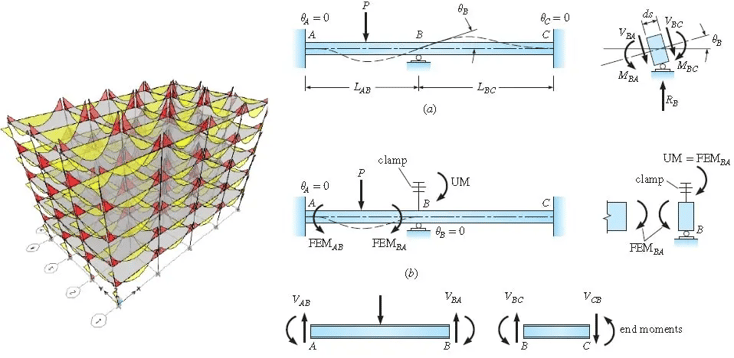 Moment Distribution Method
Moment Distribution Method
The Moment distribution method was introduced by Professor Hardy Cross of the University of Illinois at Urbana-Champaign in 1930 through his paper "Analysis of Continuous Frames by Distributing Fixed-End Moments." It was a structural analysis tool that allows for the approximation of the real stresses of complex structures through iterative calculations. This method was highly convenient for hand calculations.
1955 Tubular Designs for High-Rises | Fazlur Khan
 John Hancock Center - Trussed Tube building
John Hancock Center - Trussed Tube building
Fazlur Khan began his professional career in Chicago, where he pioneered several innovative structural designs for skyscrapers. These include Tube Structural Systems, Framed Tube, Trussed Tube, X-Bracing, Bundle Tube, Tube in Tube, and Shear Wall Frame Interaction System, which are still highly regarded in the engineering world today.
1956 Finite Element Method | The paper Stiffness and Deflection of Complex Structures
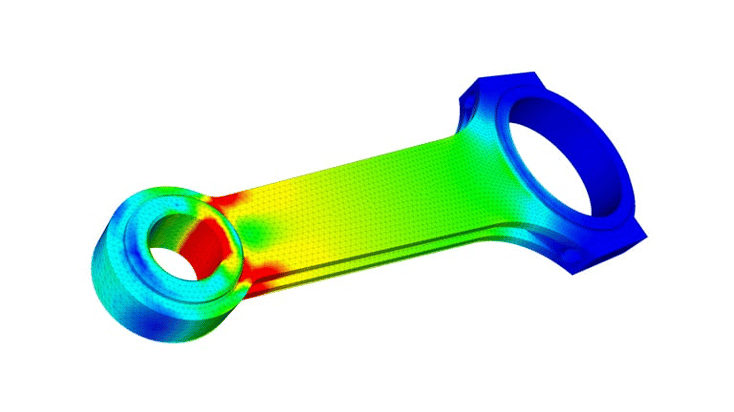 Finite element analysis of a connecting rod
Finite element analysis of a connecting rod
The term "Finite-Element Method (FEM)" was first introduced in the paper "Stiffness and Deflection of Complex Structures," published in 1956. This paper presented a comprehensive approach to the finite element method for the first time. If you're curious about the finite element method, you can refer to the following content:: Why do we need to create finite element models?
1965 Nastran | NASA
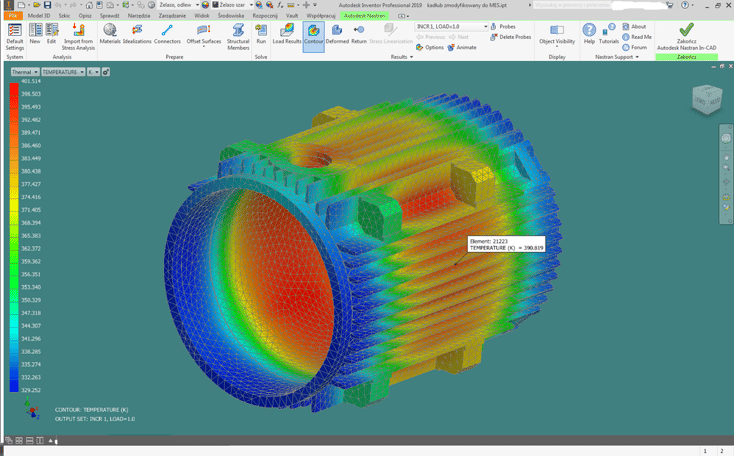 MSC Nastran
MSC Nastran
A structural analysis solver tool called NASTRAN (NASA Structural Analysis) was developed, enabling structural engineers to make accurate stress predictions in complex structures. You can download the software in the following link : NASA STRuctrual ANalysis (NASTRAN)(LAR-16804-GS) | NASA Software Catalog
1969 First generation of FEA software | The MacNeal-Schwendler Corporation
 The MacNeal-Schwendler Corporation
The MacNeal-Schwendler Corporation
Under the name of MSC/NASTRAN, the MacNeal-Schwendler Corporation launched the first NASTRAN version to be sold commercially. It is based on the original NASTRAN code developed by NASA. This is referred to as the first generation of FEA software.
1973 Sydney Opera House | Jørn Utzon, Peter Hall

The Opera House is a building constructed with a beautiful and provocative roof structure. Considered unbuildable at the time, the Opera House's curved surfaces posed challenges in determining wind loads.Structural engineers made substantial use of computer analysis software for the first time there, which is thought to have saved them about ten years of human work.
Recognized globally as an outstanding artistic monument and symbol, this building holds exceptional universal value in the fields of structural engineering and architectural technology. It has been designated as a UNESCO World Heritage Site.
A post on the history of structural engineering in the information age will be uploaded soon.
References
1930 Moment Distribution Method
Moment Distribution Method of Structural Analysis - The CONSTRUCTORS
1956 Finite Element Method | The paper Stiffness and Deflection of Complex Structures
M., J., Turner. (1956). Stiffness and Deflection Analysis of Complex Structures. Journal of the Aeronautical Sciences.
1965 Nastran | NASA
NASA Technology Transfer Program - NASA STRuctrual ANalysis (NASTRAN) (LAR-16804-GS)
Topics
#StructuralEngineering
#CivilEngineering
#Infrastructure
#Getmotivated
/Jegeon%20240_240.png)
Hello, I am Jegeon Ryu, a Project Manager responsible for developing MOTIVE for engineers dedicated to creating a safer and better world. During my two years of military service, I learned that creating a safer world is achievable through the sharing of technology and motivating each other. My goal is to contribute to the happiness of the world by creating a global platform that facilitates mutual knowledge sharing and growth.
Profile: Jegeon Ryu
※ Click on the keywords below 'Topics' to view related content.

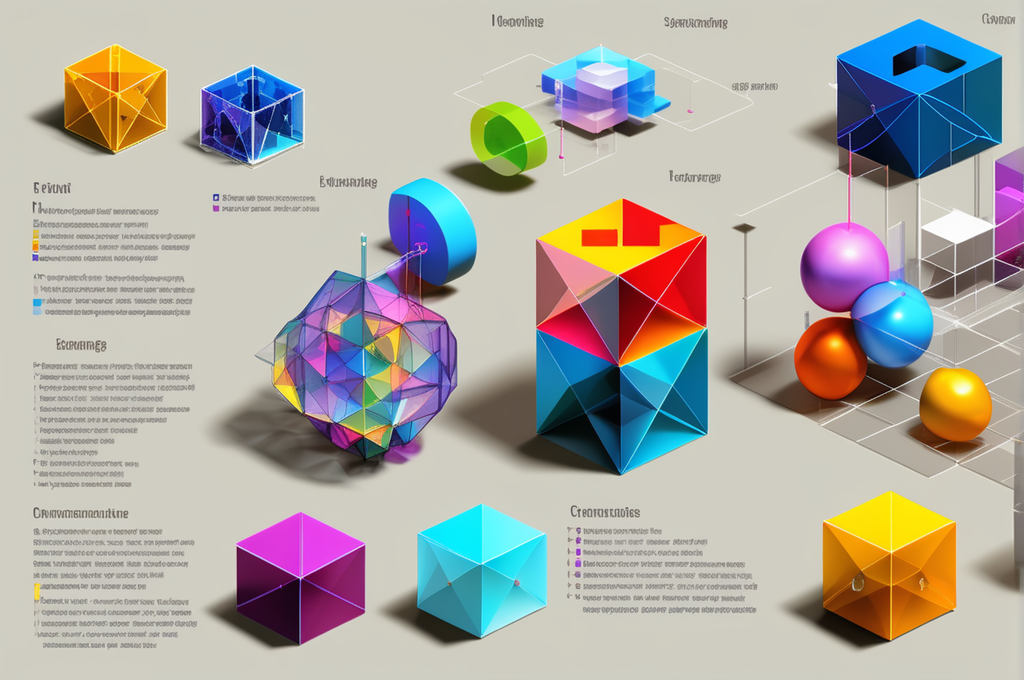

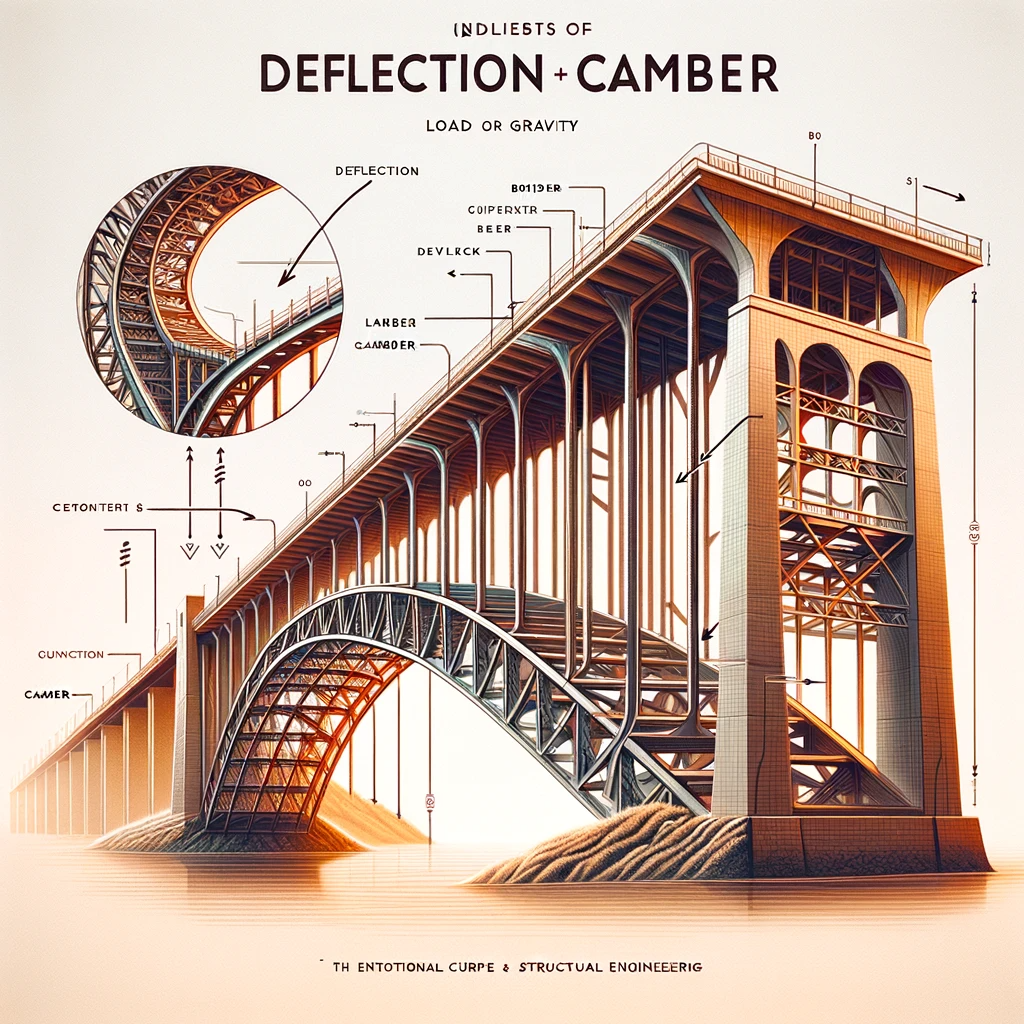


/%EC%A0%84%EA%B7%9C%EC%8B%9D.jpg)


